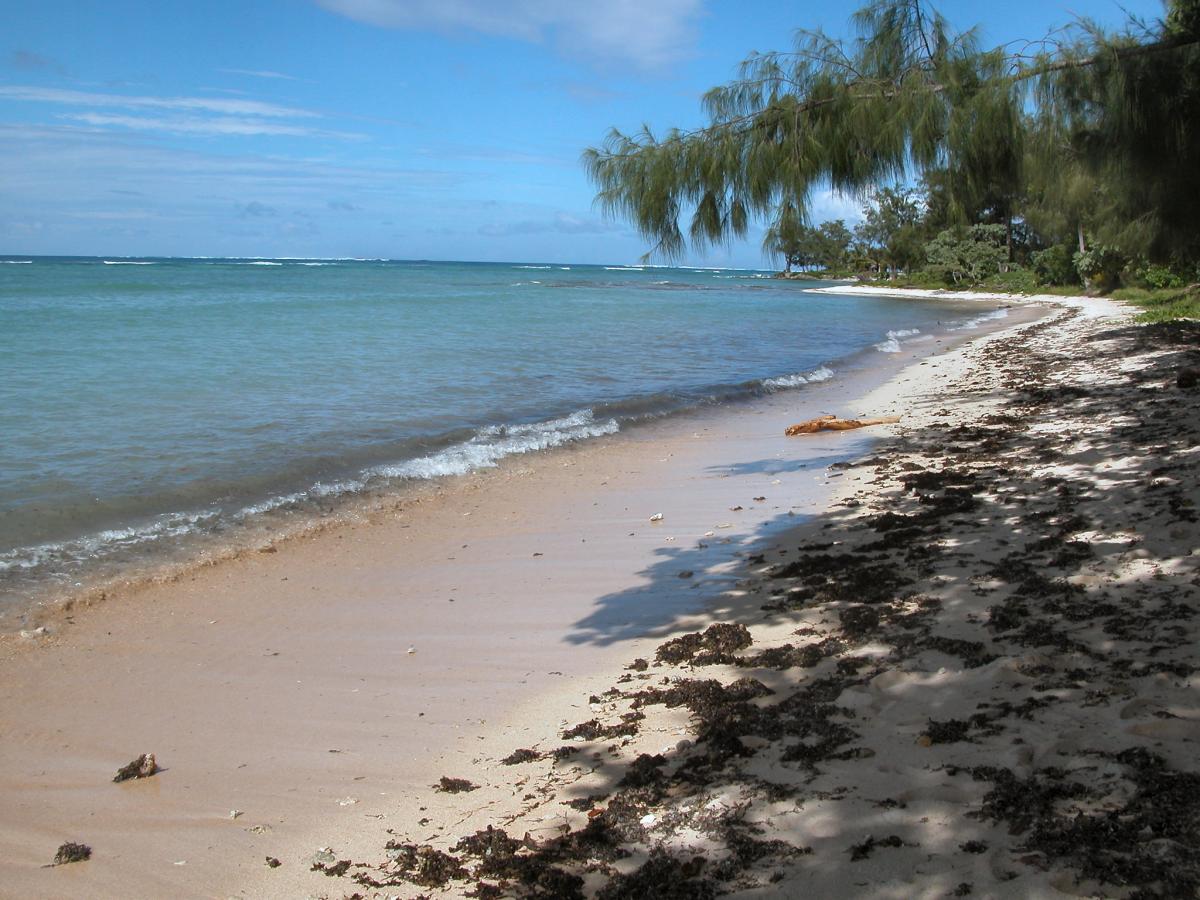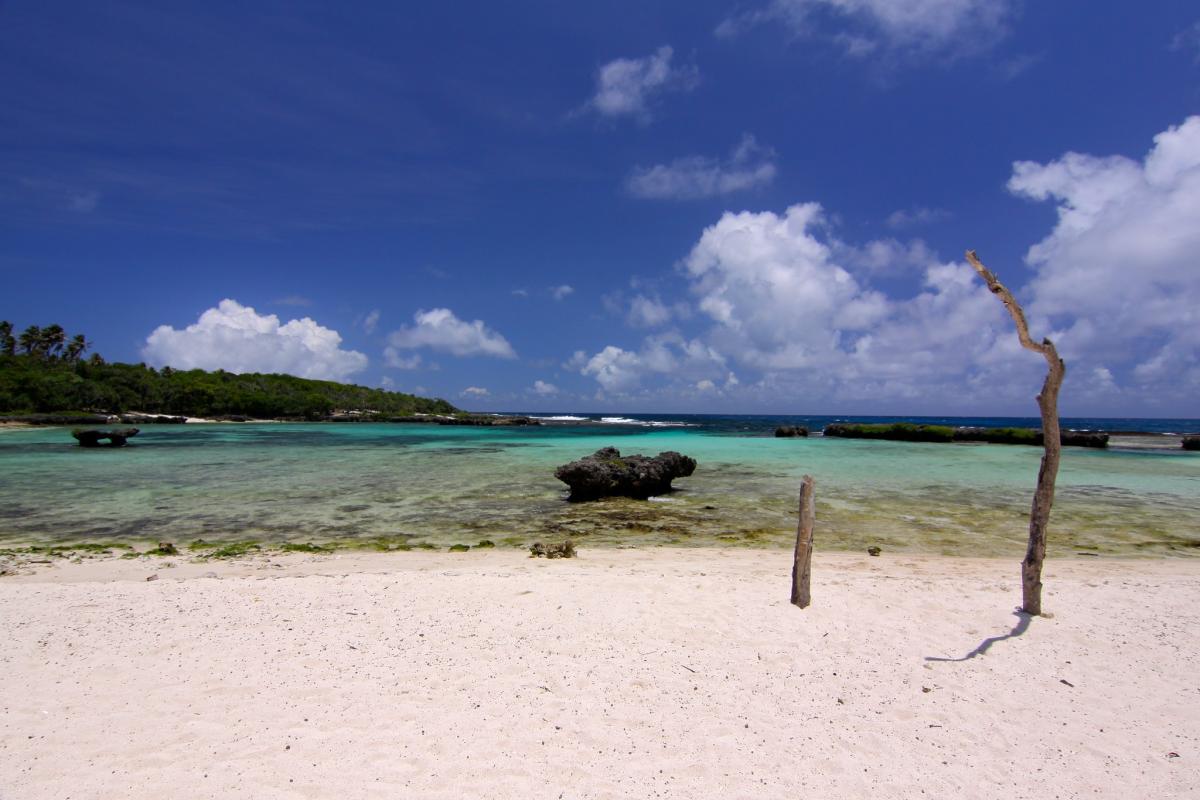YJ0VV Team will be active from Port Villa, Efate Island, IOTA OC - 035, Vanuatu, 16 - 30 October 2024.
They will operate on HF Bands, including activity in CQ WW DX SSB Contest.
Recent DX Spots YJ0VV
QSL via N4VGE, LOTW.
Vanuatu: the islands named by James Cook
To the north-east of Australia, where the deceptively calm Pacific Ocean is particularly warm, lie the numerous lands of eight groups of so-called "black islands": this is how the word "Melanesia" is translated from the ancient Greek, long ago assigned to the archipelagos for the color of the skin of the people who inhabit them.
One of the archipelagos of the "Black Islands" is the Republic of Vanuatu, which James Cook in the late XVIII century called New Hebrides (New Hebrides) - in honor of the archipelago near Scotland in the Atlantic Ocean.
Translated from the distinctive Bislama Creole language, Vanuatu means "this land is forever," which is what the citizens who won independence from England and France in the last century believe about the beautiful land they inhabit.
 Efate Island, Vanuatu. Author - Hannes Rada.
Efate Island, Vanuatu. Author - Hannes Rada.
The historical development of the republic: from savages to free citizens
The island was once inhabited by authentic black tribes... But in 1606 the ships of the Spanish navigator Pedro Fernandez de Quiros, with Portuguese blood in his veins, landed on the shores of one of Vanuatu's eighty-three islands.
Soon the local pagan population learned the "joys" of colonization (officially, the New Hebrides fell under the authority of the condominium of the British and French in 1906.
By the way, among the predominantly Christianized population in the archipelago, one can meet people who adhere to the religion of their ancestors and practice ancient paganism.
...During World War II, the American armed forces were based on the archipelago, mainly on its largest island, Santo.
Beginning in the late spring of 1980, and ending in the summer of that year, this island became a concentration of militia forces that successfully rebelled against the metropolises from France and Great Britain. The rebellion brought the long-awaited independence to the country: thus, the date of July 30th became the starting point when New Hebrides was renamed the Republic of Vanuatu and it was recognized internationally.
The Republic also actively cooperates with other countries, for example, Vanuatu became a member of the WTO in August 2012.
 Efate Island, Vanuatu. Author - Ron Brindley.
Efate Island, Vanuatu. Author - Ron Brindley.
Structure of the New Hebrides
The Republic of Vanuatu occupies - neither a little nor a lot - 83 islands, which in aggregate terms makes up a land area equal to twelve and a half thousand square kilometers, on which a rather large number of citizens - 221 336 people - are scattered!
All eighty-three islands in the southwestern location of the Pacific are compactly "scattered", or rather, stretched into the outline of a large letter "Y", and consist of islands such as, for example:
- Efate, with the active volcano McDonald;
- Tanna Island, which originated from an ancient volcano that is still active; for example, the Yasur volcano continues to erupt on the island, and the island is regularly shaken by its activity and washed by heavy tropical rains;
- the almost perfectly triangular-shaped Ambrym, where volcanoes continue to actively erupt, creating bizarre and beautiful lava lakes - in fact, the town itself is one huge shield-shaped volcano;
- also volcanic in nature, with excellent coves, is the island of Malekula;
- the largest in the group, Espíritu Santo (Spanish for "Holy Spirit") - densely populated and quite "charismatic" in terms of the habits of the indigenous population.
In total there are fourteen large and densely populated islands in the archipelago. There are six dozen smaller islands, and nine of the remaining 83 are quite small.
The capital of the large archipelago of Vanuatu is located in the city of Port Vila, just off the coast of the southwest of Efate Island.
Port Vila was recognized as the capital of the colonial lands as early as 1906, but was inhabited by the poorest and most impoverished segments of the population.
Due to the economic development of the islands, their administrative center developed, where the infrastructure was built. Thus, Port Vila has "Bauerfield" - the main airport of the Republic, which has international connections.
Interestingly, the capital of Vanuatu is a symbol of friendship, established in 2009 between the Russian Federation and the archipelago. Russian traveler Golovnin contributed a lot to good relations, for which a beautiful monument was erected right in the central square of Port Vila.

Efate Island, Vanuatu. Author - pilou de gre.
The original population of the archipelago: what they believe and what languages they speak
On the islands that were under the "yoke" of colonizers, speaking English and French, and professing Christianity, the legacy of the unfree past, which actively and unceremoniously interfered in the well-established beat of pagan islanders, can be felt.
So, today there are no problems with communication on any of the islands of the archipelago, because the population, except for the complex and unusual to the ear creole language Bislama perfectly speaks English and French: these are all three official languages of Vanuatu.
The citizens of the republic profess the Christianity planted among their colonized ancestors - more specifically, one of its branches - Protestantism.
Things to see and wonder at
The islands are surrounded in some places by deadly reefs, which hundreds of years ago were stumbled upon on wooden schooners and ships by seafarers of Captain James Cook's time.
Until now, the mournful hulks of the "dead" flotillas of Her Royal Majesty, as well as representatives of some other metropolises, their "unweathered" colorful energy attract the attention of tourists from all over the world.
In addition to ancient artifacts, nature is majestic and beautiful: clear ocean waters and amazingly beautiful sand (for example, in Espíritu Santo, on Champagne Beach, it is a delightful pink color!) turn rest and contemplation into a real holiday.
Spicy and unsafe hobbies of the islanders
Despite the fact that almost all the population of the archipelago are zealous Christians, they, like ordinary people, have some weaknesses. The originality of not quite "decent" hobbies of Vanuatans is due to the peculiarities of nature, or rather - plants, which are rich in the islands.
For example, the local population likes to indulge in the local endemic called Kava-Kava. This representative of the pepper family is a real phyto-drug, and along with a widespread enthusiasm for alcoholic beverages, it creates a criminogenic mood among citizens (especially Santo Islanders.
What currency to bring when shopping in Vanuatu
Not so long ago, until 1983, the local population used a specific money called the New Hebrides franc, as it was issued by the Paris Mint at the time of colonization.
Nowadays it is possible to visit the islands, remembering James Cook's fleet, of course, with dollars (American, Australian) and euros..... But only they will have to be exchanged for the national monetary unit - Vatu, since 1982 issued by the Bank of Indochina.
The amazing qualities of this specific "money" is that it is completely devoid of exchangeability... Apparently, to fully justify the name: in translation from the Creole language "Vatu" means stone.

